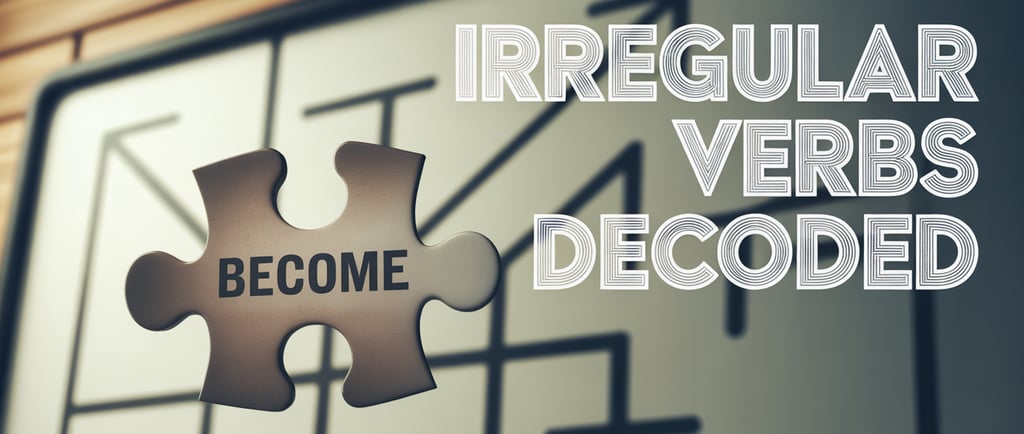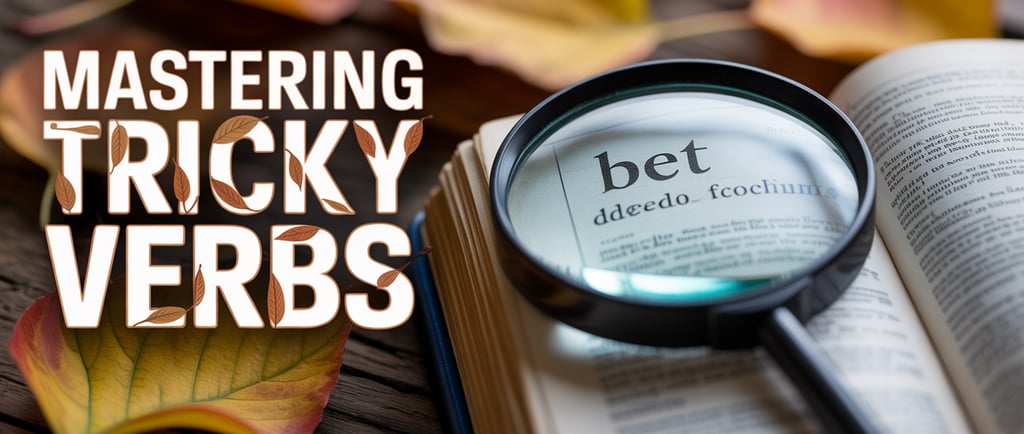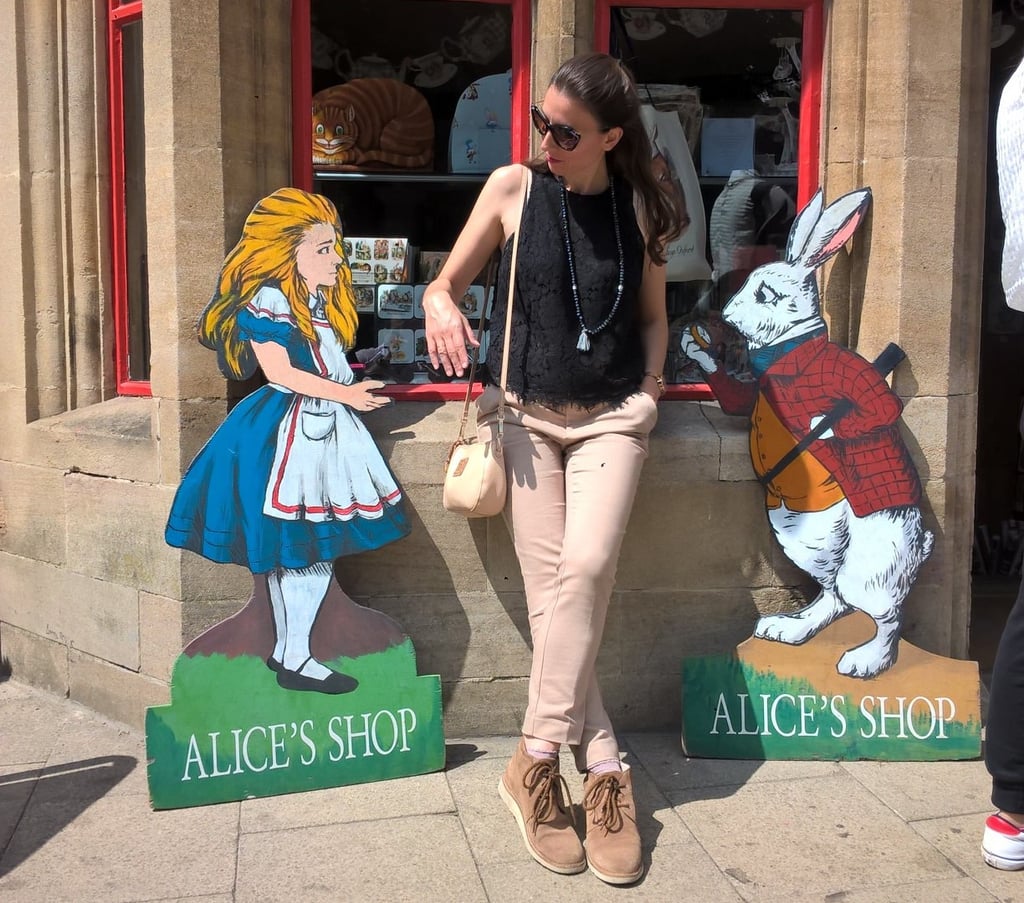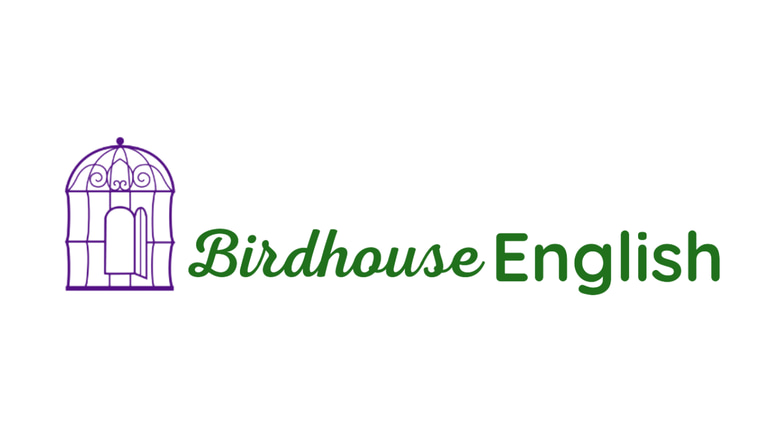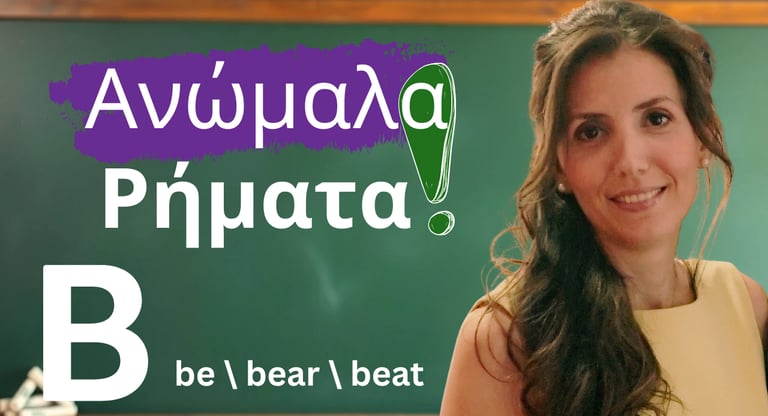Get your free copy of WEEK 1 of "My English Summer" HERE

Irregular Verbs: become, begin, bet
Unraveling the Irregular Verb Mystery: become, begin, bet
If you have ever wondered how the most common irregular verbs actually change their forms, today's YouTube video is for you... 3 irregular verbs and a simple hack that will make each one TODAY unforgettable!
Just a quick note — since this video lesson comes from my bilingual channel, you’ll see some Greek translations 🇬🇷 to support my Greek learners. But don’t worry! If you’re an international viewer, you can simply skip over those or just enjoy the beautiful sound of the Greek language while you learn!
Which one appeals to you? These irregular verbs pop up everywhere in everyday English — in conversations, books, and even songs.
Oh, and if you missed my earlier videos, here’s your full PLAYLIST to "fix the irregular verbs horror" once and for all. Come Join me as I'm breaking them down so you can finally master them with ease!
And here you can find my previous lessons and grab my tips!
Irregular Verb Horror? Let's Fix That
Bizarre Irregular Verbs: be \ bear \ beat
I believe you already know that irregular verbs don’t follow the usual ‘-ed’ pattern. It’s one of those quirks that makes English both tricky and fascinating! Many learners, when try to use them, they might feel frustrating. Some think: Am I saying it right? Should it be ‘began’ or ‘begun’? Did I ‘become’ or did I ‘became’? Do you find yourself stumbling over those forms too, feeling like they just don’t make any sense? You’re definitely not alone! I know how overwhelming that can feel — but once you really ‘meet’ these verbs, they stop being confusing strangers and start being your everyday friends. But if you’re not sure how they change in different tenses, they can feel like a puzzle.
Let me introduce your new pals right now. We’ll decode them together, step by step, so you can use them confidently. Wings up — let’s fly!
1️⃣ BECOME
Infinitive: become
Past: became
Past participle: become
➡ Example: “She became a teacher last year.” / “He has become more confident.
2️⃣ BEGIN
Infinitive: begin
Past: began
Past participle: begun
➡ Example: “The film began at 8.” / “We have begun a new project.
3️⃣ BET
Infinitive: bet
Past: bet
Past participle: bet
➡ Example: “I bet on my favorite team.” / “He has bet all his money.
Some change a lot, like begin, while others stay steady, like bet. Once you notice the pattern, you start to feel more confident. When you link verbs to their meaning, your memory locks them in. So the next time you want to say, ‘I have begun’ or ‘She has become’, your brain already knows which form to use.
I love how each verb has its own personality — like characters in a story!
Become is the verb of transformation — it always tells you about change.
Begin is the verb of starting — a new adventure, a fresh page.
Bet is the verb of taking a chance — a little risk, a little fun.
Now it’s your turn: What’s YOUR favourite irregular "character" verb?
Let me know in the comments — I’d love to hear from you! And if our meeting today sparked a little something for you, check out my other videos for more practical tips. I love sharing my English knowledge through genuine connection with you — that’s what makes learning meaningful.
I can help you learn English:
❤️ Courses → Explore all Birdhouse English Courses
❤️ Private Coaching → 1:1 Sessions with Vanessa
❤️ For kids (ages 4–7) → Want to improve your kids’ reading and literacy? 📖 Download free samples here
❤️ Free Listening Practice → Listen & Learn with exercises and answer key included
❤️ Entrepreneurial Literacy → Boost your English & business skills
Want updates, meaningful lessons, and personal tips from me?
🪺🌿Subscribe to my newsletter and join my email list — 💎I only share what helps you grow.
Sending You My Softest Kiss,
❤️Vanessa Koukou


